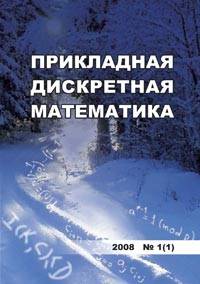We show that many known schemes of the cryptographic key public exchange protocols in algebraic cryptography using two-sided multiplications are the special cases of a general scheme of this type. In most cases, such schemes are built on the platforms that are subsets of some linear spaces. They have been repeatedly compromised by the linear decomposition method introduced by the first author. The method allows to compute the exchanged keys without computing any private data and, consequently, without solving the hard algorithmic problems on which the assumptions are based. Here, we show that this method can be successfully applied to the following general scheme and, thus, is a universal one. The general scheme proceeds as follows. Let G be an algebraic system with the associative multiplication, for example, a group chosen as the platform. We assume that G is a subset of a finitely dimensional linear space. First, some public elements gi,... ,gk Е G are taken. Then the correspondents, Alice and Bob, sequentially publicise the elements of the form ) for some a, b Е G, where ^>a,b(/) = a/b, / Е G and / is a given or previously built element. The exchanged key has the form K = ^>аг,Ьг (<£аг_1,Ьг_1 (... (<£ai,bi (ft) ...))= агa^_i... aiftbi. . . bi_ibi. We suppose that Alice chooses parameters a, b in a given finitely generated subgroup A of G, and Bob picks up parameters a, b in a finitely generated subgroup B of G to construct their transformations of the form ^>„,5. Under some natural assumptions about G, A and B, we show that an intruder can efficiently calculate the exchanged key K without calculation of the transformations used in the scheme.
Download file
Counter downloads: 281
- Title General algebraic cryptographic key exchange scheme and its cryptanalysis
- Headline General algebraic cryptographic key exchange scheme and its cryptanalysis
- Publesher
Tomsk State University
- Issue Prikladnaya Diskretnaya Matematika - Applied Discrete Mathematics 37
- Date:
- DOI 10.17223/20710410/37/4
Keywords
криптография, криптоанализ, 'распределение ключа, линейное разложение, cryptography, cryptanalisis, key exchange, linear decompositionAuthors
References
Andrecut M. A Matrix Public Key Cryptosystem. arXiv math.: 1506.00277v1 [cs.CR], 31 May 2015.
Wang X., Xu C., Li G., et al. Double Shielded Public Key Cryptosystems. Cryptology ePrint Archive, Report 2014/558, Version 20140718:185200, 2014. https://eprint.iacr.org/2014/ 558
Stickel E. A new method for exchanging secret keys // Proc. Third Intern. Conf. ICITA 05. Contemp. Math. 2005. V. 2. P. 426-430.
Harley B. and Harley T. Group Ring Cryptography. arXiv: 1104.17.24v1 [math.GR], 9 April 2011. 20 p.
Harley T. Cryptographic Schemes, Key Exchange, Public Key. arXiv math.: 1305.4063v1 [cs.CR], May 2013. 19p.
Shpilrain V. and Ushakov A. A new key exchange protocol based on the decomposition problem // Algebraic Methods in Cryptography. Contemp. Math. 2006. V. 418. P 161-167.
Myasnikov A., Shpilrain V., and Ushakov A. Group-Based Cryptography. (Advances courses in Math., CRM, Barselona). Basel; Berlin; New York: Birkhauser Verlag, 2008. 183 p.
Myasnikov A., Shpilrain V., and Ushakov A. Non-commutative Cryptography and Complexity of Group-Theoretic Problems. (Amer. Math. Soc. Surveys and Monographs). Providence, RI: Amer. Math. Soc., 2011. 385 p.
Ko K. H., Lee S. J., Cheon J. H., et al. New public-key cryptosystem using braid groups // CRYPTO 2000. LNCS. 2000. V. 1880. P. 166-183.
Романьков В. А. Введение в криптографию. Курс лекций. М.: Форум, 2012. 240с.
Романьков В. А. Алгебраическая криптография. Омск: Изд-во Ом. ун-та, 2013. 135 с.
Романьков В. А. Криптографический анализ некоторых известных схем шифрования, использующих автоморфизмы // Прикладная дискретная математика. 2013. №3(21). С. 35-51.
Myasnikov A. G. and Roman'kov V. A. A linear decomposition attack // Groups Complexity Cryptology. 2015. V.7. P. 81-94.
Roman'kov V. A. and Menshov A. V. Cryptanalysis of Andrecut's Public Key Cryptosystem. arXiv math.: 1507.01496v1 [math.GR], 6 Jul 2015.
Горнова М.Н., Кукина Е.Г., Романьков В. А. Криптографический анализ протокола аутентификации Ушакова - Шпильрайна, основанного на проблеме бинарно скрученной сопряжённости // Прикладная дискретная математика. 2015. №2(28). С. 46-53. URL: http://vital.lib.tsu.ru/vital/access/manager/Repository/vtls:000508465
Roman'kov V. A. A polynomial time algorithm for the braid double shielded public key cryptosystems // Bulletin of the Karaganda University. Mathematics Series. 2014. No. 4(84). P. 110-115; arXiv math.:1412.5277v1 [math.GR], 17 Dec 2014.
Roman'kov V. A. A nonlinear decomposition attack // Groups Complexity Cryptology. 2017. V. 8. P. 197-207.
Eick B. and Kahrobaei D. Polycyclic Groups: A New Platform for Cryptology? arXiv math.: 0411.077v1 [math.GR], 3 Nov 2004. 7p.
Gryak K. J. and Kahrobaei D. The status of polycyclic group-based cryptography: A survey and open problems // Groups Complexity Cryptology. 2017. V. 8. P. 171-186.
Cavallo B. and Kahrobaei D. A Family of Polycyclic Groups over which the Conjugacy Problem is NP-complete. arXiv math.: 1403.4153v2 [math. GR], 19 Mar 2014. 14 p.
CheonJ.H. and Jun B. A polynomial time algorithm for the Braid Diffie - Hellman Conjugacy Problem // CRYPT0-2003. LNCS. 2003. V. 2729. P. 212-225.

General algebraic cryptographic key exchange scheme and its cryptanalysis | Prikladnaya Diskretnaya Matematika - Applied Discrete Mathematics. 2017. № 37. DOI: 10.17223/20710410/37/4
Download full-text version
Counter downloads: 624